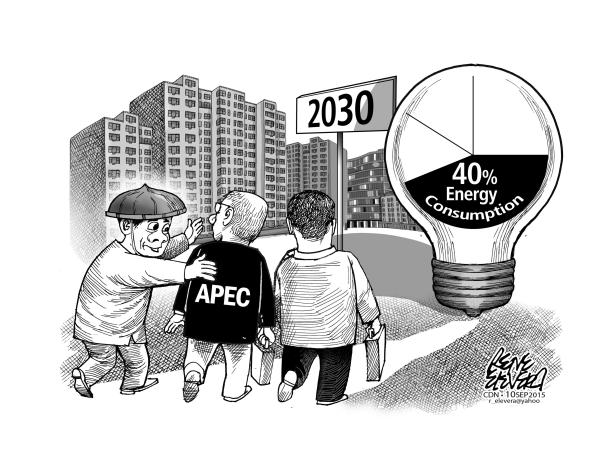
It’s quite a confidence booster to see that delegates of the Asia-Pacific Economic Cooperation forum were encouraged to learn from the Philippines in developing their own energy conservation plan.
“I’m very happy to see that our (country) host already has a Conservation Action Plan until 2020. I hope we can learn from the Philippine experience,” Li Pengcheng, chairman of the APEC Experts Group on Energy Efficiency and Conservation (EGEEC), told delegates last week.
That vote of confidence is not unwarranted. Energy Undersecretary Donato Marcos said the country saved 1.6 million tons of oil each year in 2012 and 2013 despite the continuing dependence of the country’s power plants and public transport sector on fossil fuel.
This medium-term plan will prepare the country for the long-term objective of reducing energy consumption by 40 percent in 2030 compared to a 2010 baseline.
The country’s own roadmap for energy conservation calls for reduced energy consumption of 1.6 percent per year and energy savings of up to one-third of the current demand.
Other initiatives include retrofitting of public lighting, public offices, state universities and street lights as well as the distribution of energy-efficient lights and the conduct of consumer education on energy efficiency and demand-side management.
While these are all well and good, we could only hope that the national government proves just as aggressive in developing sustainable, green energy sources as alternatives to traditional fuel-based sources.
Our Asia-Pacific neighbors have their own energy conservation plans that go beyond mere maintenance and information campaigns.
While most American conservatives continue to deny the reality of climate change despite the unabating warm temperatures experienced in Alaska, their government has funded billions of dollars’ worth of research and development toward building clean energy stations, public transportation and buildings.
True, our energy conservation plan gives incentives to households that somehow manage to secure their own energy supply, i.e. solar panels, but does the national and even local governments fund research and development on clean energy sources in a significant way?
That’s a big question mark.
But along with development of clean energy sources, there should also be a 180-degree change in the mindset of the country’s industries, government and private sector about energy use.
We must view natural resources as a limited asset that needs careful stewardship, not mindless exploitation if we are to ensure that our children, and later generations, can still enjoy them.
This is a challenge for all Filipinos, and not just APEC delegates or government policy makers.